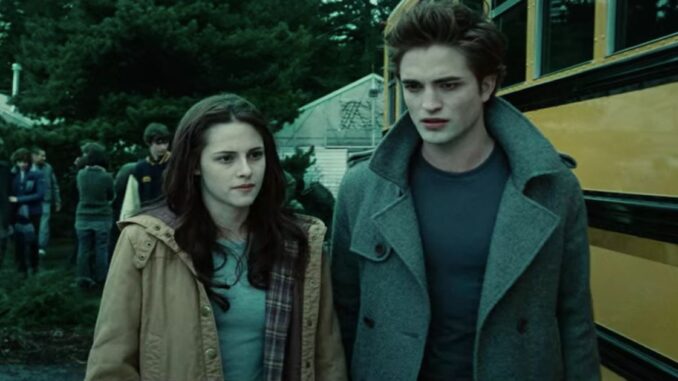
Five Nights of Fangs and Frenzy: A Glimpse into the Twilight Marathon Madness
The marquee glowed an ethereal purple, casting a luminescent sheen on the faces gathered outside. It read, simply, “Twilight Marathon: Five Nights, Five Movies, One Obsession.” This wasn’t just a movie screening; it was a pilgrimage, a ritual, a testament to a love so potent it could withstand the cinematic equivalent of an endurance test. And I, a curious observer, had come to witness the madness – or perhaps the magic – firsthand.
The “Twilight” saga, a cornerstone of the Young Adult paranormal romance genre, had sparked a cultural phenomenon. While critics often sneered, the series resonated deeply with a devoted fanbase, primarily composed of young women who found themselves captivated by the forbidden romance between mortal Bella Swan and vampire Edward Cullen. And tonight, they were here, ready to immerse themselves in the world of Forks, Washington, for five consecutive nights.
The atmosphere crackled with anticipation. Groups of friends, clad in Team Edward or Team Jacob shirts (though Edward seemed to have a slight edge), chatted animatedly, comparing favorite scenes and speculating about what the next five nights held. Some had brought blankets and pillows, transforming their seats into makeshift nests, prepared to hunker down for the long haul. Others clutched well-worn copies of the books, ready to whisper along with every line of dialogue.
Night one, “Twilight,” felt like a reunion. The audience, a mix of teenagers and young adults, cheered at iconic moments: Bella’s first glimpse of the dazzling Edward, their awkward yet undeniably charged conversations in biology class, the thrilling baseball scene under the storm-swept sky. Gasps and knowing smiles rippled through the crowd with each longing glance and dramatic gesture. It wasn’t just watching a movie; it was reliving a shared experience, reaffirming their collective devotion.
As the nights progressed, the air thickened with a potent blend of fatigue and fervent enthusiasm. “New Moon” brought tears and frustrated sighs, “Eclipse” elicited cheers for epic battle scenes and heartfelt declarations, and “Breaking Dawn Part 1” was met with a hushed reverence, particularly during the highly anticipated wedding scene. The audience was exhausted, their eyes bloodshot, their voices hoarse from quoting lines and singing along to the soundtrack, but their commitment never wavered.
The real beauty of the marathon, however, lay not in the films themselves, but in the sense of community it fostered. Strangers bonded over shared memories, dissecting plot points and debating the merits of Edward versus Jacob with the fervor of seasoned scholars. They shared snacks, offered words of encouragement during the particularly grueling parts (ahem, “Breaking Dawn Part 2”), and celebrated the end of each night as if they had conquered a shared Everest.
Beyond the obvious fandom, the marathon revealed something deeper about the appeal of “Twilight.” These films offered a fantasy of intense, unwavering love, a escape into a world of supernatural beauty and dramatic stakes. For many, it was a refuge from the complexities and uncertainties of everyday life. The marathon allowed them to collectively embrace this fantasy, to momentarily shed their inhibitions and revel in the unadulterated emotion that fueled the saga.
By night five, the energy was palpable. The final film, “Breaking Dawn Part 2,” felt like a victory lap. They had endured, they had laughed, they had cried, and they had emerged, perhaps slightly more sleep-deprived, but undeniably more connected. As the credits rolled, a collective sigh filled the theater, followed by a standing ovation. It was a celebration not just of the films, but of the community they had built and the passion that had brought them together.
Leaving the theater, I understood. The “Twilight” marathon wasn’t just about watching movies; it was about belonging. It was about finding solace and connection in a shared love for a story that, for a few magical nights, had transported them to another world. It was a testament to the power of fandom, the enduring appeal of romance, and the undeniable allure of a good vampire story. The marquee, its purple glow now fading, seemed to whisper a promise: the sun may rise, but the night, and the fandom, will always return.
